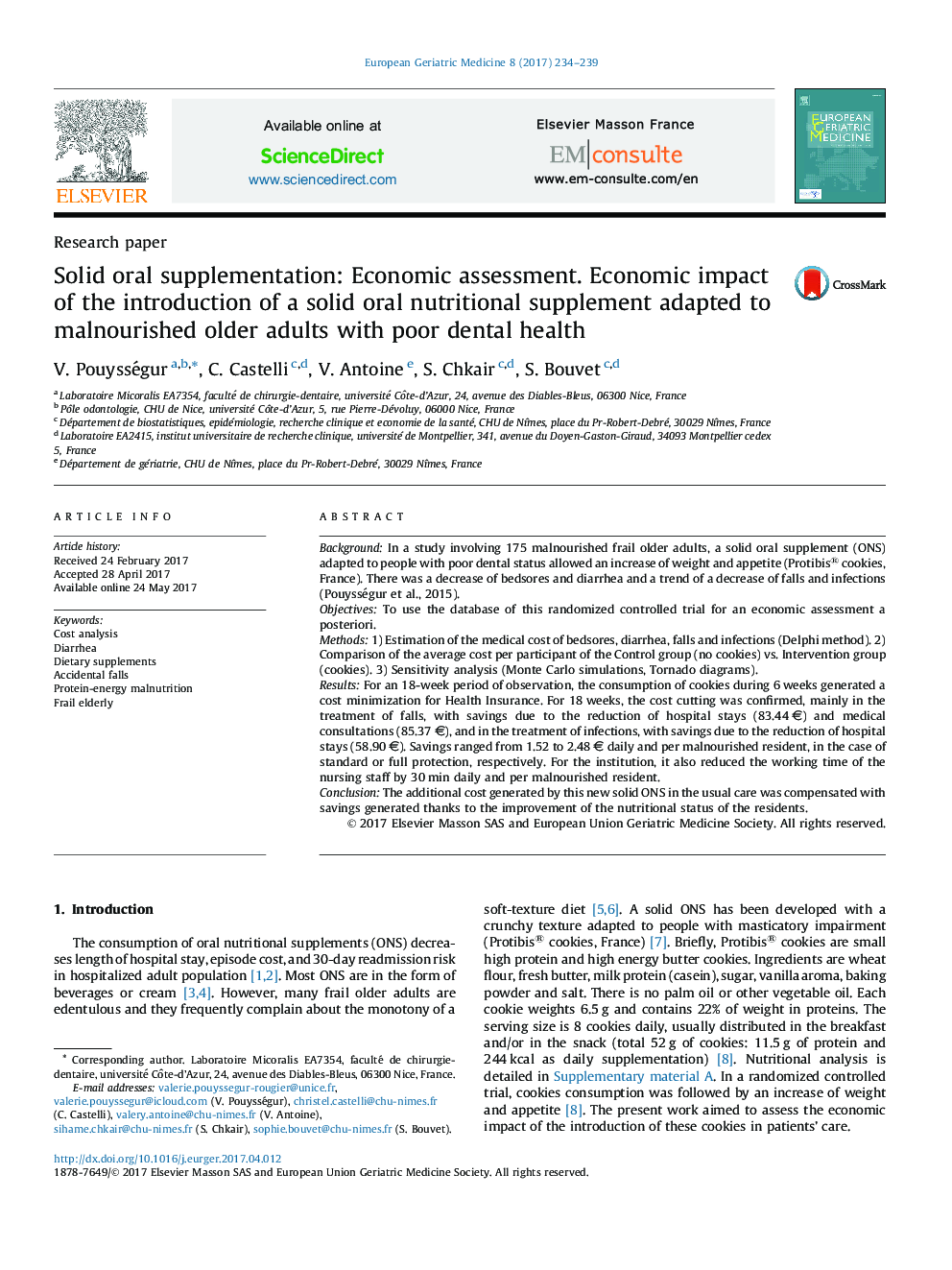| Article ID | Journal | Published Year | Pages | File Type |
|---|---|---|---|---|
| 5662519 | European Geriatric Medicine | 2017 | 6 Pages |
BackgroundIn a study involving 175 malnourished frail older adults, a solid oral supplement (ONS) adapted to people with poor dental status allowed an increase of weight and appetite (Protibis® cookies, France). There was a decrease of bedsores and diarrhea and a trend of a decrease of falls and infections (Pouysségur et al., 2015).ObjectivesTo use the database of this randomized controlled trial for an economic assessment a posteriori.Methods1) Estimation of the medical cost of bedsores, diarrhea, falls and infections (Delphi method). 2) Comparison of the average cost per participant of the Control group (no cookies) vs. Intervention group (cookies). 3) Sensitivity analysis (Monte Carlo simulations, Tornado diagrams).ResultsFor an 18-week period of observation, the consumption of cookies during 6 weeks generated a cost minimization for Health Insurance. For 18 weeks, the cost cutting was confirmed, mainly in the treatment of falls, with savings due to the reduction of hospital stays (83.44 â¬) and medical consultations (85.37 â¬), and in the treatment of infections, with savings due to the reduction of hospital stays (58.90 â¬). Savings ranged from 1.52 to 2.48 ⬠daily and per malnourished resident, in the case of standard or full protection, respectively. For the institution, it also reduced the working time of the nursing staff by 30 min daily and per malnourished resident.ConclusionThe additional cost generated by this new solid ONS in the usual care was compensated with savings generated thanks to the improvement of the nutritional status of the residents.
